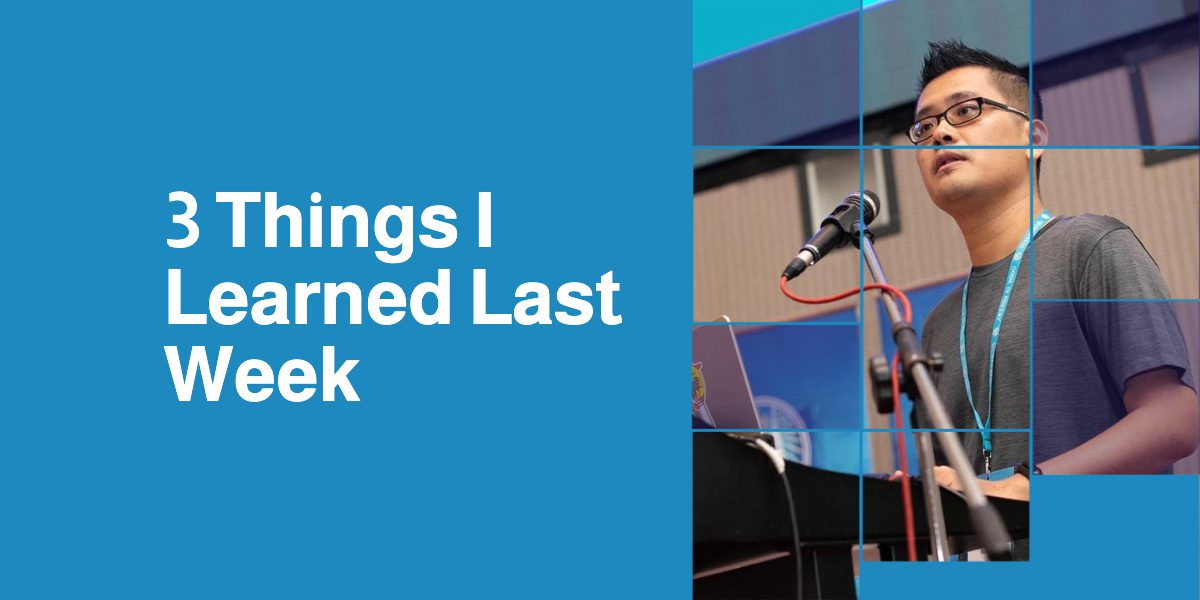Welcome back to the 72nd edition of “3 Things I Learned Last Week”! 🤓 (Which, between you and me, is starting to feel like a lot of weeks.)
As always, I’ve been diving headfirst into the vast ocean of knowledge, surfacing with the most intriguing pearls of wisdom. Think of this newsletter as your weekly treasure chest filled with insights that will hopefully make you think, “Huh, that’s actually kind of cool.”
And hey, if you get a kick out of it, feel free to share the love and spread this newsletter to your fellow nerds (or anyone who pretends to be one).
Ready to level up your coding game? Let’s get this bread! 🍞
—
1. Why Specialization in Coding is Like Choosing Your Pokémon Starter
Remember when you started your Pokémon journey and had to choose between Bulbasaur, Charmander, or Squirtle?
Picking a coding specialization is kind of like that. Do you want to be a front-end wizard, a back-end maestro, or a database ninja? (Personally, I’d go with back-end maestro, but that’s just me.)
Employers dig deep knowledge in specific areas, not someone who knows a little bit of everything. It’s like hiring a master plumber to fix your leaky faucet instead of your cousin who once watched a YouTube tutorial.
TL;DR:
- Find your coding passion.
- Research what’s in demand.
- Dive deep into your chosen area.
- Build cool stuff to show off your skills.
- Network with other coding enthusiasts (and maybe catch some Pokémon together).
Watch the video on why specialization is important in coding
—
2. The 3 Laws of Writing Readable Code (So You Don’t Want to Throw Your Laptop Out the Window)
Let’s face it, reading someone else’s code can sometimes feel like trying to decipher ancient hieroglyphics. But fear not, fellow coder! The 3 laws of writing readable code are here to save the day (and your sanity).
- Law #1: Thou Shalt Not Nest Deeply. (No one likes a code labyrinth.)
- Law #2: Thou Shalt Encapsulate Reusable Code. (Don’t repeat yourself, you’re not a parrot.)
- Law #3: Thou Shalt Use Clear and Descriptive Names. (Seriously, “x” doesn’t tell me anything.)
Following these simple rules will make your code cleaner, easier to understand, and less likely to make you want to quit your job and become a goat farmer.
Watch the video on the 3 laws of writing readable code
—
3. Advice from the Top 1% of Software Engineers (Or How to Be a Coding Rockstar and Still Have Friends)
Jean Lee, a big shot at WhatsApp, dropped some serious knowledge bombs for us aspiring coding rockstars. Here’s the gist:
- Influence = Likability + Credibility: Be the coder everyone wants to work with AND deliver the goods.
- Find Your Niche: Don’t try to be everything to everyone. Specialize in something you’re passionate about.
- Quality Over Quantity: Focus on building awesome things that actually work, not just adding flashy features.
- Transparency is Key: Share your knowledge and work collaboratively. Remember, we’re all in this together.
Watch the video for advice from the top 1% of software engineers
That’s a wrap for this week’s edition! If you’re not already subscribed, hit that button below to join the party. (We have snacks.)
Subscribe here: https://www.nathanonn.com/newsletter/
Until next time, keep calm and code on!
Your friendly neighborhood nerd,
~ Nathan

Leave a Reply